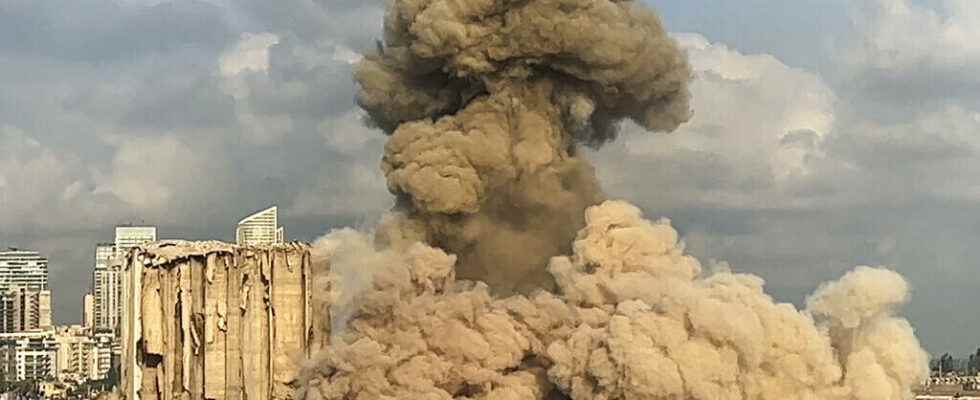The entire northern part of the grain silos damaged by the devastating explosion at the port of Beirut in 2020 collapsed on Tuesday August 23, according to AFP correspondents on site.
A cloud of smoke forms after the collapse of eight towers of the structure damaged by the blast of the August 4, 2020 explosion. Two years ago, this explosion left more than 200 dead and 6,500 injured and devastated entire neighborhoods of the Lebanese capital. The explosion was triggered in a warehouse housing hundreds of tons of ammonium nitrate stored without precautions. And it has been blamed by much of the population on the corruption and negligence of the ruling class.
The towers that collapsed on Tuesday August 23 were the last in the northern block of silos. For now, the southern block is stable, according to French civil engineer Emmanuel Durand, who has installed sensors inside the silos. On July 31 and August 4, other towers had collapsed after a fire broke out at the beginning of July in the most damaged part of the silos, caused according to the authorities and experts by the fermentation of the remaining grain stocks, combined with high temperatures. Since then, several towers have remained in flames.
Rekindled trauma
The fire rekindled the trauma of relatives of victims of the explosion of August 4, 2020. Hit hard by the blast of the detonation of August 4, 2020, the grain silos of the port, which had absorbed part of the shock, had partially collapsed.
Public Works and Transport Minister Ali Hamie had claimed that 25,000 square meters of the capital’s port would be devoted to the construction of new silos, adding that funding would come from international donors and his ministry.
In April, the authorities had ordered the demolition of the silos, but the decision was suspended due to the opposition of the relatives of the victims of the tragedy who want to make it a place of memory. The investigation into the causes of the tragedy has been suspended for months due to political obstruction by the authorities.
(With AFP)
►Also listen: The port of Beirut, two years after the explosion
